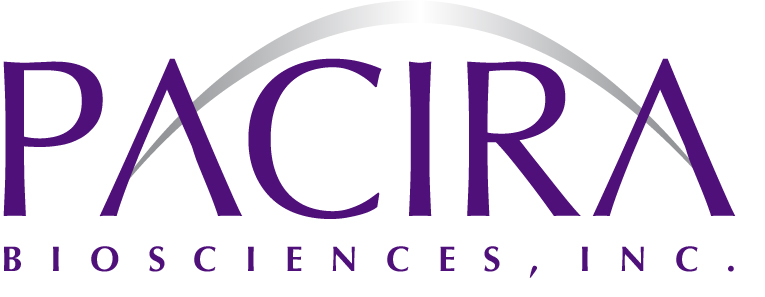
By Dr. Paula Bilica, board-certified OB/GYN, Legacy Women’s Health, San Antonio, TX
Having a baby is an exciting time for a mother. However, it can also come with new concerns and considerations – both during and after birth. Cesarean sections, or C-sections, are a standard delivery method for women who are expecting – and they are growing more common. Research from the World Health Organization (WHO) shows that C-sections account for more than 1 in 5 (21%) of all childbirths, with a third (29%) of all births expected to be via C-section by 2030.
Women’s Health and the Opioid Epidemic
I perform many C-sections, along with a range of other women’s health procedures like hysterectomies, cystectomies, oophorectomies, etc. A concern that many patients have before surgery is how much pain to expect, and how it will be managed. For too long, opioids have been the gold standard for treating pain, which has contributed to the opioid epidemic facing our nation. According to data from the Centers for Disease Control and Prevention (CDC), in 2022, nearly 110,000 people died of drug overdoses in the US.
Women are particularly susceptible to opioid misuse, and are 40% more likely than men to become long-term opioid users after surgery. Despite this data, and the risks and side effects of opioids that can hinder recovery (confusion, nausea, dizziness, dependence or addiction, etc.), many don’t realize non-opioid options exist that can effectively manage pain. As an OB/GYN, I’ve made it my mission to implement innovations in pain management that allow me to reduce my patients’ need for opioids and enhance their overall recovery.
Non-Opioid Options for Pain Management
Over five years ago, I discovered EXPAREL® (bupivacaine liposome injectable suspension), a long-acting, numbing medication that is injected directly into the surgical site and slowly delivers medication over time. This completely changed the way I treat postsurgical pain, given that it delivers numbing medication to the site of pain for the first few days after surgery when patients need it most. Since incorporating this non-opioid option into my pain management protocol, I’ve been able to significantly reduce the number of opioids I prescribe in my practice.
Keys to Postsurgical Recovery
Many of my patients who received EXPAREL reported that they used minimal, if any, opioids after surgery, as their postsurgical pain was manageable. Additionally, I’ve seen my patients experience an overall enhanced recovery, with this approach getting them up and moving, and home sooner after surgery. After successfully using EXPAREL as part of my pain management plan for C-sections and seeing the results it afforded my patients, I immediately started using it for other women’s health procedures I perform, witnessing those same encouraging results.
As surgeons and healthcare providers, we are dedicated to our patient’s health and well-being, which means providing patients with the information they need to make informed decisions. Bringing awareness to all pain management options, including non-opioid options like EXPAREL, allows us to improve the overall surgical experience, while reducing opioid use and effectively managing patients’ pain.
For more information, please www.EXPAREL.com/safety.

This article is sponsored by Pacira BioSciences, Inc.
Dr. Bilica is a consultant of Pacira BioSciences, Inc.
Indication
EXPAREL® (bupivacaine liposome injectable suspension) is indicated for single-dose infiltration in patients aged 6 years and older to produce postsurgical local analgesia and in adults as an interscalene brachial plexus nerve block to produce postsurgical regional analgesia. Safety and efficacy have not been established in other nerve blocks.
Important Safety Information
EXPAREL should not be used in obstetrical paracervical block anesthesia.
In studies in adults where EXPAREL was injected into a wound, the most common side effects were nausea, constipation, and vomiting.
In studies in adults where EXPAREL was injected near a nerve, the most common side effects were nausea, fever, and constipation.
In the study where EXPAREL was given to children, the most common side effects were nausea, vomiting, constipation, low blood pressure, low number of red blood cells, muscle twitching, blurred vision, itching, and rapid heartbeat.
EXPAREL can cause a temporary loss of feeling and/or loss of muscle movement. How much and how long the loss of feeling and/or muscle movement depends on where and how much of EXPAREL was injected and may last for up to 5 days.
EXPAREL is not recommended to be used in patients younger than 6 years old for injection into the wound, for patients younger than 18 years old for injection near a nerve, and/or in pregnant women.
Tell your health care provider if you or your child has liver disease, since this may affect how the active ingredient (bupivacaine) in EXPAREL is eliminated from the body.
EXPAREL should not be injected into the spine, joints, or veins.
The active ingredient in EXPAREL can affect the nervous system and the cardiovascular system; may cause an allergic reaction; may cause damage if injected into the joints; and can cause a rare blood disorder.
FOR MORE INFORMATION, PLEASE VISIT www.EXPAREL.com or CALL 1-855-793-9727. You are encouraged to report negative side effects of prescription drugs to the FDA. Visit www.fda.gov/medwatch or call 1-800-FDA-1088.









0 Comments